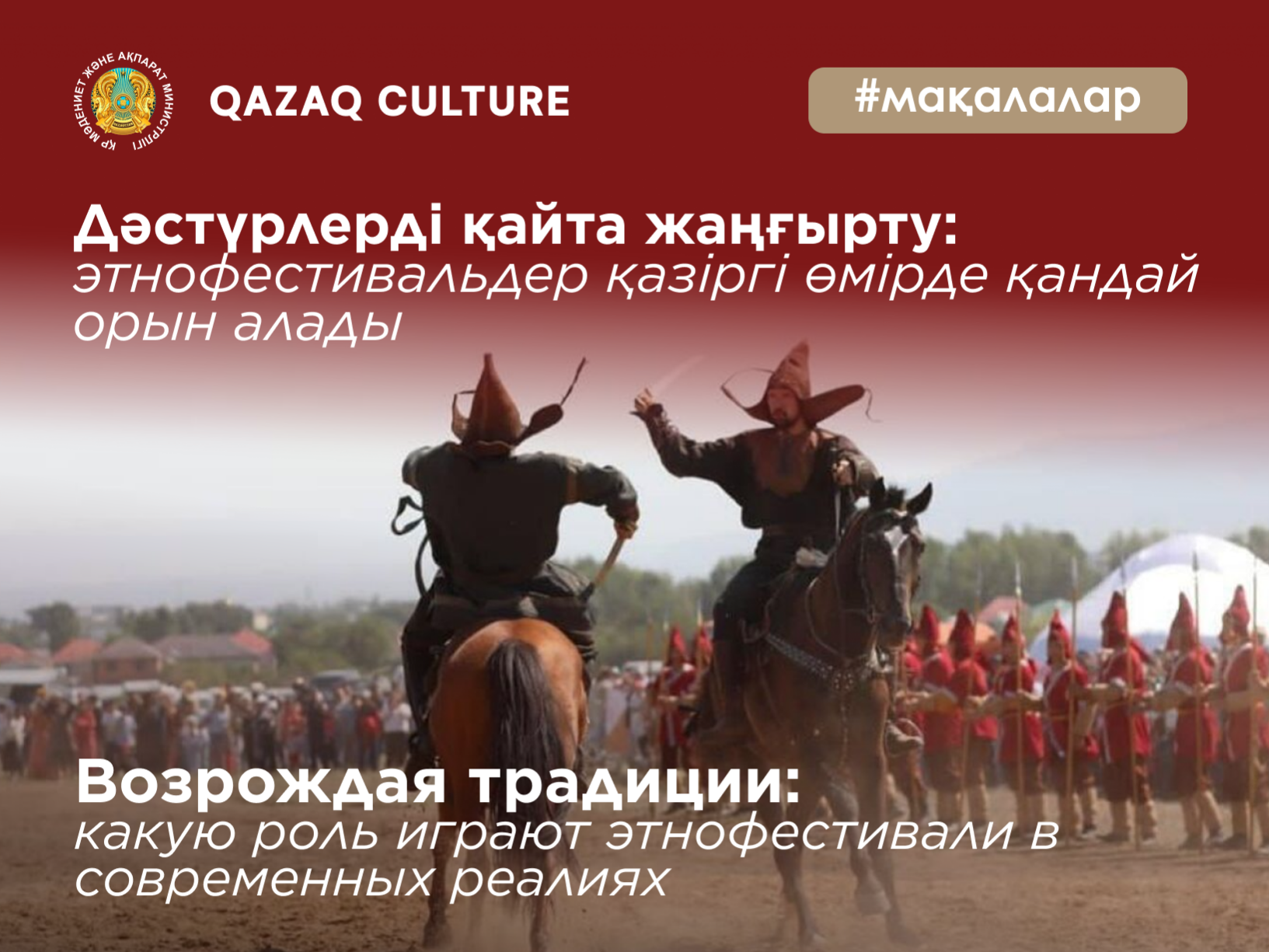Reviving Traditions: What Role Do Ethnofestivals Play in Modern Realities

Ethnoculture in Kazakhstan is experiencing a real renaissance today. If ten years ago, interest in traditional games, crafts or national music was perceived as a niche hobby, now ethnic events are becoming a mass cultural trend. They unite different generations, strengthen national identity and make the culture of Kazakhstan recognizable abroad. Interest in ethnic clothing, national cuisine and figures who develop and show ethnic culture is also growing.
From a niche hobby to a mass trend
According to the national media, in just three months of 2025, Kazakhstanis spent 31.5 billion tenge on leisure in the arts and creativity. And a significant share of these expenses fell on ethnocultural formats - festivals, master classes, concerts and fairs. Festivals "Ethnoauyl", "Uly Dala Ruhy", World Nomad Games (WNG) or regional holidays gather tens of thousands of participants. Here you can watch sports competitions: - kokpar, audaryspak, asyk atu and try your hand at crafts: from ceramics to kurak korpe. The main thing is the opportunity to "live" the tradition, and not be a passive spectator.
Ethnofestivals of the 21st century are not only songs and games of ancestors. This is a synthesis of the past and the present. Ancient rituals coexist with VR reconstructions of nomadic camps, and electronic music organically combines with dombra.
"My children enjoy attending such festivals, and then we discuss our impressions at the family table," shares Astana resident Ablai Nurkenov. For many, this is not just a vacation, but a way to strengthen family and cultural ties.
Ethno as a lifestyle
A separate trend is the growing interest in ethnic style. Young designers open showrooms, create brands inspired by national ornaments, and ethnic clothing becomes part of everyday wardrobe. Against this background, crafts cease to be a craft "for tourists" and become a competitive product.
Ethnic events are increasingly becoming a magnet for foreign guests. For a tourist, participating in asyqatu or watching kokpar is an experience that cannot be obtained anywhere else in the world.
At the 5th World Nomad Games in 2024 alone, Astana hosted:
more than 100,000 spectators from all over the world;
up to 3,000 athletes from 89-100 countries;
100+ cultural programs in the Universe of Nomads ethno village;
international conference with the participation of delegates from 12 countries.
It is gratifying that Kazakhstani culture is actively promoted beyond the country's borders: the Jerūiyq pavilion at the Venice Biennale was visited by about 98 thousand people, and the Treasures of the Great Steppe exhibition in Paris caused a stir among the European public.
In 2024, Kazakhstan as a whole received about 15 million foreign tourists, and a significant part of them came specifically for the "living culture of the steppe".
Today, ethnoformats have ceased to be niche events for "antiquity lovers". They are confidently entering the mass consciousness, turning into a lifestyle, education and even the economy.
Ethnoculture is not only a spectacle, but also an experience. At ethnofestivals, you can not only observe, but also participate: try your hand at national games, master a craft or create your own product. This format engages and makes culture “alive”.
In addition, the digital age has added acceleration. TikTok and Instagram have turned ethnoculture into a viral trend. Short videos with dombra, dances or national costumes gain millions of views, opening Kazakhstan to a global audience.
Experts note that ethnofestivals are becoming “living history textbooks”. For schoolchildren and students, they provide what is missing in dry paragraphs - touching the culture with hands, eyes, hearing.
According to them, there are three levels of cultural revival: social, when ethnoculture strengthens the sense of community in a multinational country; economic, where crafts, ethnobrands and cuisine turn into a sought-after product, and international, when Kazakhstan forms the image of a country where modernity is harmoniously combined with deep tradition. At the same time, it is important to understand that ethnic events in Kazakhstan today are not just festive celebrations. This is a dialogue between the past and the future, a space where the cultural code does not disappear, but is transformed into a resource for development. The more actively the state, business and public initiatives support this format, the more confidently Kazakhstan will declare itself as a country where tradition gives birth to the future.